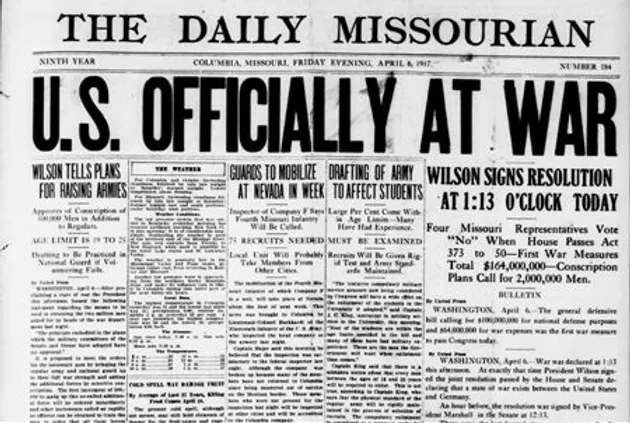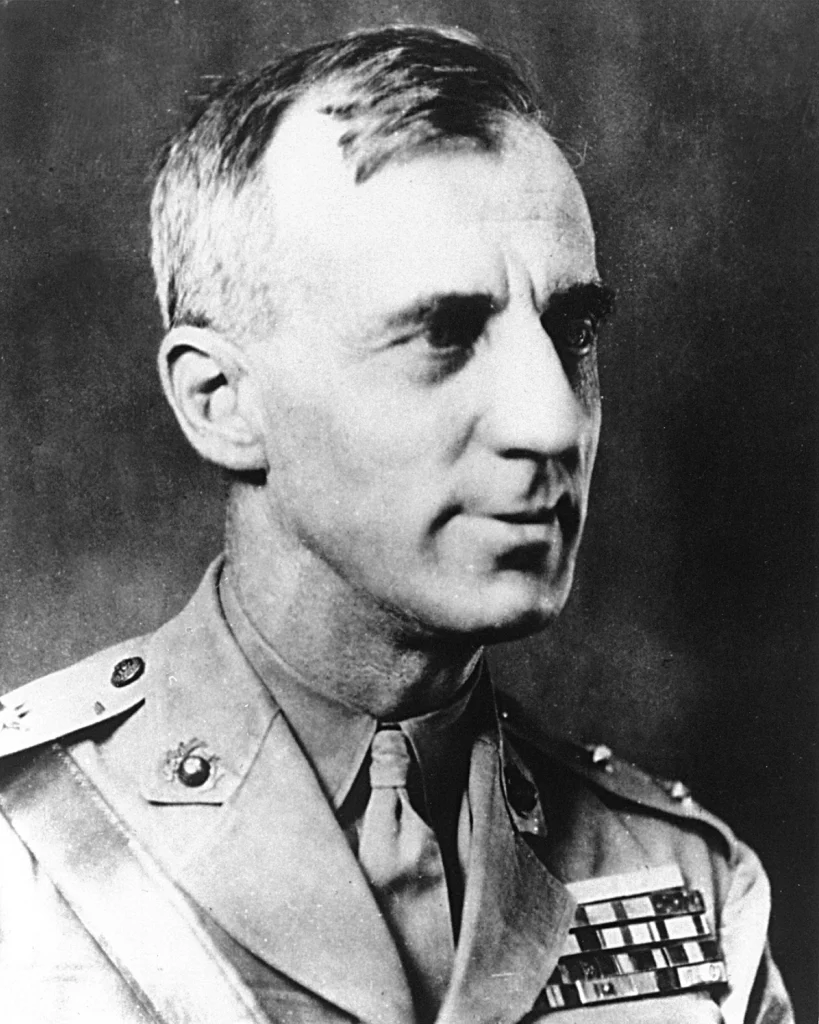(This post originally appeared on a couple other blogs where it seems to have been orphaned, posting it here to keep it alive and back dating to post date on those.)
When we have to.
How will we know we have to?
It will be obvious to a majority of our people that we have no other choice.
When we are sure it is a cost the majority of the citizens are willing to bear, and the cause is worth the cost. And when we are confident that those making the decisions will be bearing the cost too.
There has recently been a lot of jeering by anti-war folks toward pro-war folks challenging them to enlist. There is a powerful truth contained within this impulse. But it doesn’t really answer the question of when we should go to war, every chicken-hawk could enlist and we could still go to a war that the people do not agree with.
There is a large body of scholarly work on Just War Theory. Our founders were close students. The wars of republics and the wars of empires and how the first becomes the others are, and have been, fairly well understood by those who study these things.
Nothing more reliably leads to tyranny and enslavement than war. Especially continuous war. And yet a free state must be ready to defend itself with force, else a tyrannical one will eventually conquer and dominate it. So how can we be ready to fight the `right` wars?
How can we know the right wars?
In Starship Troopers Robert A. Heinlein imagined a future world where citizenship, serving in government, or even voting for representatives required a veteran status (modeled in part on real-world universal service communities from the past – Greece, Rome and present Israel, Korea). It also carried a requirement that any applicant be afforded the opportunity to serve, but must do so in a way that risks that person’s life for the protection of others. In the Infantry, in the Navy, working heavy construction on the moons of Jupiter or joining the human test population of new vaccines or treatments of dangerous diseases. Thus, the system he imagined guaranteed that people making decisions about the use of force had proven they could care more about others than themselves.
“Under our system every voter and officeholder is a man who has demonstrated through voluntary and difficult service that he places the welfare of the group ahead of personal advantage.”
― Robert A. Heinlein, Starship Troopers
But this system would be a big change from our current one. In fact Heinlein imagined a one world government regrowing out of anarchy dependent on veterans from a World War III: the great Sino-US war.
A younger Heinlein writing in For Us the Living (itself a reference to Lincoln’s famous meditation on just war in the Gettysburg Address) sketched a scheme even less likely to lead to war. One in which a declaration of war required a referendum (a national popular vote) and one that carried direct consequences for the voters. Those who voted ‘yes’ would be drafted for the war first. Those who abstained would be drafted second. Those who voted “No” would be drafted last. A character objects that this would incentivize cowardice. Another replies it guarantees honesty. Only the courageous will vote yes when committing to kill and die. When would such a vote succeed? Probably not until an obvious imminent threat could kill all of our families and our homes. But then it might be too late. It might not be practical to run votes in such circumstances. Further, this kind of scheme too would be very different from where we are now and difficult to get to. Speaking of -where are we now?
Is Congress doing its job?
Congress is very clearly assigned the power to declare war. The President, as commander in chief is empowered in executing that war – but positively does NOT get to decide when there should be one. Recently Congress seems to have abdicated this role. Though there is a lot of legal scholarship around the War Powers Act and other intricacies (e.g. this tweet thread), in general when it comes to War, Congress is no longer doing its job.

The last declared war was, of course, World War II. But the United States currently purses violent conflicts in over 60 distinct nations (Kaplan, Imperial Grunts) and those conflicts have risen to the level of a common understanding of `war` in at least five virtually un-debatateable instances (Korea, Vietnam, Gulf War, Afghanistan War, Iraq War).
Simultaneously the costs of these wars are borne less and less by the people making the decision to go to war. First, the direct first hand experience of war (military veterans serving in congress) has declined substantially from the decade of 1965-1975 where they peaked at 75% of the house and 81% of the Senate respectively. Now despite an uptick in the election of 2016 the percentage of congress that has served in any military capacity is only at 17.8% (Profile of 116th Congress)
Why should we care? Does military experience really have an effect on the decisions made by our representatives? Yes! Yes it does. An analysis by Danielle Lupton in the Washington Post demonstrated that military veterans are far more likely to constrain a president’s use of force and to gain more information about conflicts. And that still is far from enough.
We need a representative body that is bound to reflect the interests of the people. To be accountable to our will, especially when it comes to that most consequential decision – War.
How do we hold Congress accountable?
How could we construct that? How could we hold Congress accountable both to do their constitutional duty, to vote on declaring war and to vote in a way that accords with the will of the people and to bear a proportional cost?
I suggest that within 60 days of the beginning of hostilities – US military forces receiving fire repeatedly – Congress be required to vote on a declaration of war with the nation or subnational group engaged in hostilities. If Congress does NOT declare war the President would be required to remove US military forces so thoroughly that they would no longer be receiving fire.
Conversely, if war were declared it would be incumbent on Congress to raise appropriate funds and allocate them to the war and to participate as constitutionally mandated with the President in guiding the outcome and recruiting and equipping for that war.
Also, under this new system in order to properly hold accountable those who believe that killing and dying for this cause is warranted, I would suggest all members of congress have unavoidable outcomes tied to their vote.
All those all who voted `yes` would be required, within 2 weeks of the declaration for war passing, to resign from Congress, enlist in the US military and be assigned to units upon completing training that will be deployed into the combat they voted for. There would be two caveats, first, if the Congress member was already a veteran of military service they could re-enter a service at the rank they departed at in accordance with existing prior-service recruiting rules. They would still have to be deployed to combat. That is, if a Congress member separated as a General or a Staff Sergeant etc. and their service would have them back at that rank they would still be deployed into that combat zone with a role appropriate to their station and skills. Second, if the Congress member were too old to be allowed to enlist or re-enter service they could be allowed to stand for reelection to congress IF one of their adult children (that they had raised for a minimum of at least 6 years) were to volunteer to deploy in their stead. If the congress member did not comply with any of these conditions, they would be summarily impeached, removed from office and barred from holding any public office again.
Those that abstained, voted present or were absent from the vote: the same conditions would apply as those who voted yes. Except for those who had already served in combat. These would be allowed the privilege of exercising their conscience in abstentions, present votes or absences from voting, having earned it with their own risk before.
Those who voted no, and for those combat veterans who abstained, or for those whose children are serving in their stead, I would suggest all would immediately stand for re-election. Thus if they made a choice that did not obey the will of the people, the people would be empowered to replace them expeditiously. Obviously those who voted yes or did not vote no but were not combat veterans (whose children were not serving in their stead), would not be eligible to stand for re-election because they would be serving on active duty in combat.
What about profiteering?

Smedley Butler, a Marine General, and two time winner of the Congressional Medal of Honor (one of only two Marines to do so) observed in his book War is a Racket that conditions of war always benefit certain moneyed interests at the expense of the poor. I would also suggest that in addition to these checks on Congress a law be passed to check war profiteering. How could we do that? By imposing a 90% marginal tax rate on individual income over $1M for the duration of the war, earmarked directly to fund the war and expiring upon signature of a peace treaty. Someone more intimately familiar with corporate tax than I could likely find a good level at which to apply a similar anti-profiteering corporate tax. Earning more than $1M a year in war time? Great, thanks for your patriotic contribution to our collective war effort. Want to end the war faster and get back to making more money? Great! Take it up with a much more accountable congress.
Thus, American troops being in hostilities for 60 days or more would trigger a requirement for an up or down vote with powerful incentives compelling our representatives to vote in accordance with our wishes (due to the immediate election it would trigger), impose a duty of service, commitment and sacrifice on those making the decision to go to war and lead to far more military veterans in congress and among the “elite”. A more accountable and responsive system would likely lead to less war, while still protecting our ability to go to war if we the people truly believed it necessary.
Though Andrew Yang hasn’t laid out a policy that fully aligns with what I’ve written here he has firmly called for what I believe to be the most important part of it: that the power to declare war return to congress. I’m hopeful that given his willingness to listen and iterate he gets elected and implements a policy like this.
Afterword:
Where do these ideas come from? I studied Political Science and History (Two BA’s) in undergrad, then served 8 years in the Marine Corps, 18 months of them deployed in combat. I got my MBA at UNC Kenan-Flagler and did a lot of self-study and reading. During that time I absorbed, borrowed and copied the ideas of others, standing on the shoulders of giants. I’ve tried to cite some of my influences but will never be able to give all appropriate credit. These are just the ideas and synthesis of one man…. What do YOU think?
Leave a Reply